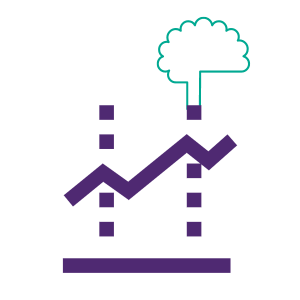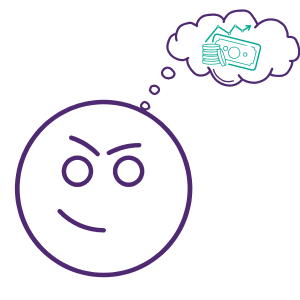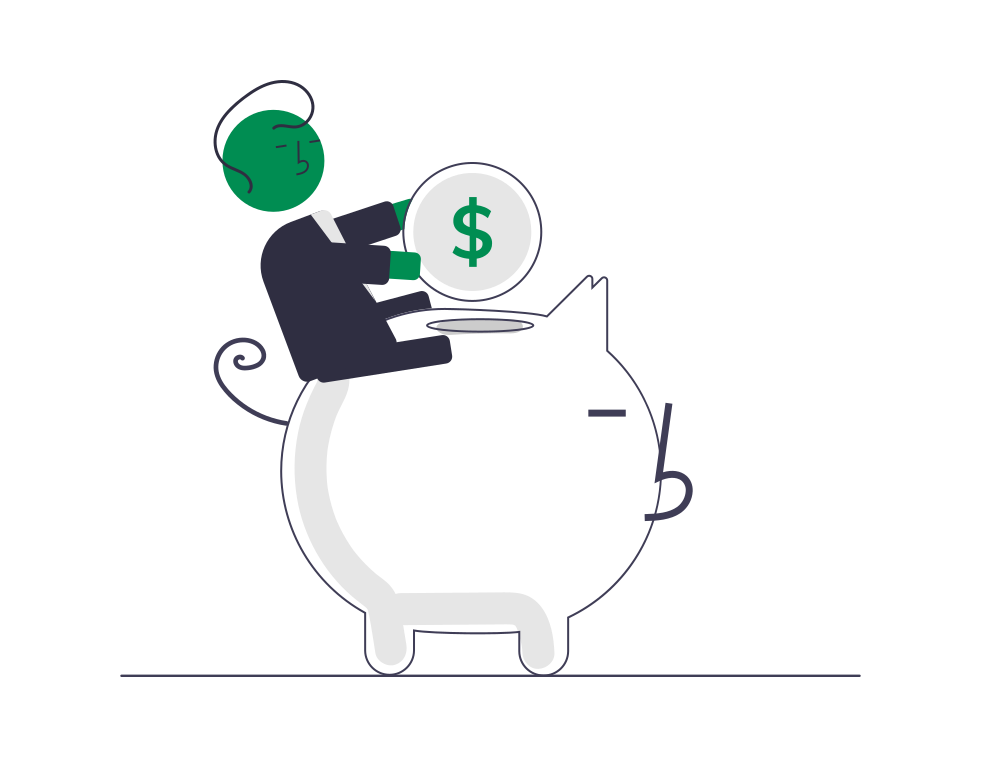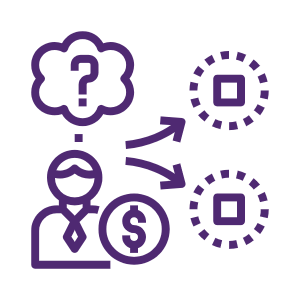Trading Psychology
Psychology
Trading psychology is crucial when it comes to trading stocks, forex, or almost any other asset. In reality, it is just as important as trading skills and knowledge or current market conditions for completing a good trade.
Trading psychology refers to a trader’s mindset, as well as how they manage their emotions, thought processes, and trading decisions. Traders who remain sensible at all times and do not succumb to Greediness or phobias have a better chance of receiving huge pay-outs, or at the very least not losing too much money, according to the trading psychology definition.
Despite the fact that psychological cues are subjective and unique to each trader, there are some universal effects that shape how people conduct their business. These are some of the stimuli:
- Worry
- Rage
- Nervousness
- Greediness
When a trader is terrified, he or she may feel driven to sell all of their trading funds and not take new positions, causing them to miss out on a great chance. They tend to make rash decisions and place new trades when they are irritated after a loss, even though the market is obviously against them.
When it comes to Nervousness and Greediness, traders who are overcome by these impulses frequently desire payments right away or in significant sums. They don’t want to take small steps toward achievement; they want to attain it all at once, which might lead to disaster.
Traders must practice their psychological responses to various scenarios, just as they must practice their real trading skills, in order to overcome Worry and Rage, and manage Nervousness and Greediness. They will not be overwhelmed if the market behaves in their favour or against them in this manner.
Margin Trading

Trader mindset/psychology of trading - why is it important?
When trading in a financial market, whether it’s Forex, stocks, commodities, or anything else, traders have to have a certain skill set that will enable them to minimize possible losses and increase upcoming payouts. In this sense, having extensive trading knowledge and experience, as well as regularly following the market developments, are pretty much essential.

However, the importance of trading psychology should not be underestimated. The way traders handle various market developments mentally can have no less significant effect on the success of their trading positions. Even if they know everything about trading terms, techniques, and strategies, and regularly get updated on market developments but don’t have enough mental experience not to make rash decisions, the chances of grave losses will still be high.
Therefore, having sound trading psychology can increase their chances of getting larger payouts or, at the very least, reduce the impact of losses. This is even more important as, on many occasions, traders need to make quick decisions about opening or closing a position or modifying it, and having a certain presence of mind can make their decisions more conscious.
Psychological Stimuli
Now, there are lots of psychological stimuli that affect the traders’ decisions. In fact, they are very subjective and individual traders experience different responses. However, trading psychologists still outline some of the more universal stimuli that tend to emerge all across the board. More specifically, we will review four of those stimuli:
- Worry – when a sudden market development like the stock market crash occurs and all they think about is to liquidate funds and save the cash
- Rage – when they lose during the trade and they’re so angry they cannot stop opening new positions
- Nervousness – when they engage in trading but the actual payouts are so minuscule that they cannot help but go big: make huge deposits and open much larger positions
- Greediness – when they receive a payout from the trade, which attracts them to the extent that they cannot stop opening new positions

All of these Forex trading psychology stimuli lead to the deterioration of traders’ perception of what is really happening in the market. Let’s take a look at each of them more closely and see how they manifest themselves in trading. We will categorize these responses in terms of their psychological characteristics: Worry and Rage – as they’re more negative in a sense that the outside world is having a greater influence on a person, and Nervousness and Greediness – as they’re more positive in a sense that a person is trying to extend their influence on the outside world.

Worry and Rage
One thing that is absolutely essential to understand is that both Worry and Rage are innate feelings that every single person experiences in their lives. It’s pretty much impossible to completely eradicate them. However, with some practice and mental work, we can learn to better react to them.
When a trader finds out that something drastic like a stock market crash has just occurred, their gut tells them that it is not the best idea to not only open new trades but even to hold tradable assets. Therefore, they start liquidating their holdings and turning them into cash, not to mention their reluctance to place new trading positions.
As for the Rage, it’s also an incremental part of our emotional build. When the market goes against the trader and causes them to lose funds, Rage tends to get hold of them in many cases. This, in turn, clouds their perception of market development and makes them open/close positions based on emotions, instead of calculations.

Now, while these stimuli are certainly natural and unavoidable even, for developing successful trading psychology, traders need to be aware of what they’re afraid of, as well as what makes them angry beforehand – that is, before the accident has already happened. This is possible through mental exercise and the realization that while there will definitely be many difficulties along the way, traders can actually turn them into their advantage by thinking clearly and not yielding to emotions.
Nervousness and Greediness
Next up, let’s talk about Nervousness and Greediness in trading. Unlike Worry and Rage, these psychological stimuli usually emerge when traders have a more positive experience during trading and want to have more of it.
One of the biggest misconceptions in trading is this idea that people can instantly get rich just by starting trading in Forex, stocks, or any other market. They believe that with a single position, they will get a huge payout.
However, in real life, this is rarely the case, unfortunately. In actual trading, notwithstanding the financial market, people tend to generate smaller portions of a payout per single trade. And the reason why most successful traders are actually successful is that they do things step by step, accumulating payouts every step of the way.
Not taking this important aspect into account, impatient traders tend to make rushed decisions and place too large positions per single trade. This way, they may be increasing the prospective payouts, but more importantly, they’re also increasing the size of losses. And more often than not, such decisions lead to losses than payouts.

As for Greediness, yet another important factor in the psychology of trading, it also is innate to our character. In trading, there is a common saying that “pigs get slaughtered,” meaning those who want more and more of the payout will get caught and start to actually lose funds.
Traders, who find a perfect spot where their position generates payouts, tend to maintain that position for a long time in an attempt to take every penny out of the market. Unfortunately, the market tends to make drastic swings after a long period of upward/downward trend. Therefore, it is better to stay careful at all times and not yield to whims and instincts.


Some tips on how you can improve your trading psychology

Having listed some of the most widespread psychological stimuli that influence the decision-making process in trading, it is also important to propose a method that can help people overcome them. As we noted earlier, the sound and present mind can be just as effective in trading as skills and knowledge. Therefore, here are some tips for developing successful trading psychology:
- Discover your personality – when deciding to trade on a financial market, it can be of massive help to find out your personality trait: whether you’re an impulsive person or someone who doesn’t fall for emotions that easily. If you find out that you’re an impulsive trader who can be overcome with Worry or Greediness, knowing it beforehand will help you control the emotions more effectively. And if you’re more stable in that sense, you will know that you can trust yourself during the most critical times;
- Set up a trading plan – when you’re doing something, you first set out a plan and then follow it until the end. The same is true for trading. If you develop a plan, you will know exactly how much time you dedicate to trading, as well as how much money you put in it and what strategy you will stick to till the end. In short, the plan will guide you through every step of the way;
- Don’t expect fortune right away – as we noted earlier in the article, success doesn’t always come knocking on your door right after you’ve started trading. In fact, your individual positions will likely generate smaller payouts. But that shouldn’t upset you because that is how it usually happens in trading anyway. Successful traders stick to a plan and take things one step at a time, which ultimately results in a successful trading career – at least there are more chances of it;
- Don’t be Greedinessy – this next tip may seem pretty straightforward but still many traders tend to choose this way. While it seems like a good idea to always stick to one strategy that generates payout, you need to be aware that the market always changes its direction and will never be in your favor all the time. Therefore, expanding your knowledge, reading some of the best trading psychology books, and employing new strategies will help you adapt to new situations and always be prepared.
These tips are by no means everything that a trader needs to know about trading psychology or how to improve emotional responses to the market developments. However, taking them into account can still have a significant effect on how they react to the payouts or losses and how they make trading decisions.
The fundamentals of trading psychology - key takeaways
To lead effective trades in various financial markets, traders must possess a variety of talents. The first thing that comes to mind is genuine trading expertise and experience; nevertheless, it is also critical to have the right mindset and not succumb to impulsive emotional impulses.
Trading psychology is crucial when it comes to trading stocks, forex, or almost any other asset. In reality, it is just as important as trading skills and knowledge or current market conditions for completing a good trade.
According to the trading psychology definition, traders who remain somewhat calm and sensible have a better probability of generating larger profits. They can also reduce the amount of loss they suffer.
We discussed four of the most common and universal psychological factors that affect traders’ mental health in this article:
- Worry of losing money during market swings
- Rage and Frustration at losing money
- Nervousness about receiving large pay-outs immediately
- Greediness about getting more and more of the pay-outs.
These emotional cues have the ability to impair a trader’s judgment, causing them to make impulsive trading judgments and lose money. As a result, it may be a good idea to work through your current emotional state, establish a strategy, be patient, and adjust to new situations. Traders are more likely to rely on logic than emotions in this manner.
Frequently Asked Questions about Tradinng Psychology
One of the most essential features of forex trading psychology is that it can have a significant impact on how people handle their trading positions. In fact, trading psychology is just as crucial as trading knowledge and experience, as well as keeping up with market movements on a daily basis.
Traders’ emotional reactions to various market occurrences are referred to as trading psychology. There are a variety of biases and passions buried deep within our personalities, and certain situations manage to bring them to the surface. While these responses are highly subjective and individual, there are several psychological responses that are ubiquitous in trading:
- Worry
- Rage
- Nervousness
- Greediness
These stimuli appear in a variety of situations. Traders, for example, are terrified of losing money during a severe market decline, so they liquidate their holdings and avoid taking on new positions. Their judgment gets hazy as a result of giving in to these emotions, and they are unable to make more successful trading decisions.
As stated in the article, having the right mindset is just as crucial as having the right trading education and expertise. This way, you’ll be better prepared to deal with market fluctuations or other occurrences that trigger emotional responses.
Finding out what type of personality you have is one of the finest strategies to limit your emotions. Finding out if you’re easily swayed by emotions before you start trading will help you be more prepared for what’s to come. That’s because, despite our apparent self-awareness, our character never fails to impress us. And, if you’re aware of your proclivity for reckless decisions in emergency situations, you’ll be less astonished and overwhelmed by your actual decisions, making it easier to get out of the situation.
Having a specific plan is another recommendation that can potentially boost the psychological response to various market developments. In fact, a trading strategy is essential even if you aren’t concerned about your mental health – that is, if you are able to remain calm and rational. It helps you to set aside a particular amount of time, money, and resources for trading and to stick to a strategy. As a result, your mind will be less concerned over not knowing what to do next.
Traders have two options when it comes to trading: they may either create a position and leave it open for days, weeks, or even months, or they can open and close their positions within a day. Day trading is the latter method, and here are some day trading psychology ideas to help you:
The first and most obvious suggestion that can be applied to any form of trading is to become more aware of your mental state. This tip was also mentioned in the prior response. A more precise piece of advise would be to take things slowly and don’t expect to get wealthy overnight. As a day trader, you should be aware that your short-term holdings will rarely create substantial amounts of profit. Instead, you’ll have to approach things carefully and methodically, opening smaller and more rational positions as you get to your own point of success.
Another tip for day traders is to be as adaptable as possible. It is possible to detect a specific trend (uptrend or downtrend) during short-term trades and effectively hold to it for numerous deals. While it may create profits, you must keep in mind that a trend that has been going on for a while might quickly reverse. Your present strategy will be rendered worthless immediately as a result of this. As a result, being adaptable and trying different tactics will aid you in dealing with such drastic shifts.
What is the definition of trading psychology? What is the significance of remembering this? As psychologists and behavioral scientists have suggested, our actions are heavily influenced by our emotions, so we’re certain to make mistakes when we’re in a bad mood. All of these can result in a negative Forex psyche.
When you lose a trading position, for example, it’s simple to become enraged and lose your ability to make sound decisions. And with such a trading attitude, you can make rash decisions, chase market moves that aren’t helpful to you, and end up losing more money.
Other psychological impulses can be used to make similar arguments. Success can distort your judgment and lead you to assume that everything you do will increase your market returns. In conclusion, maintaining a positive trading mindset in Forex is a more long-term strategy for success.
